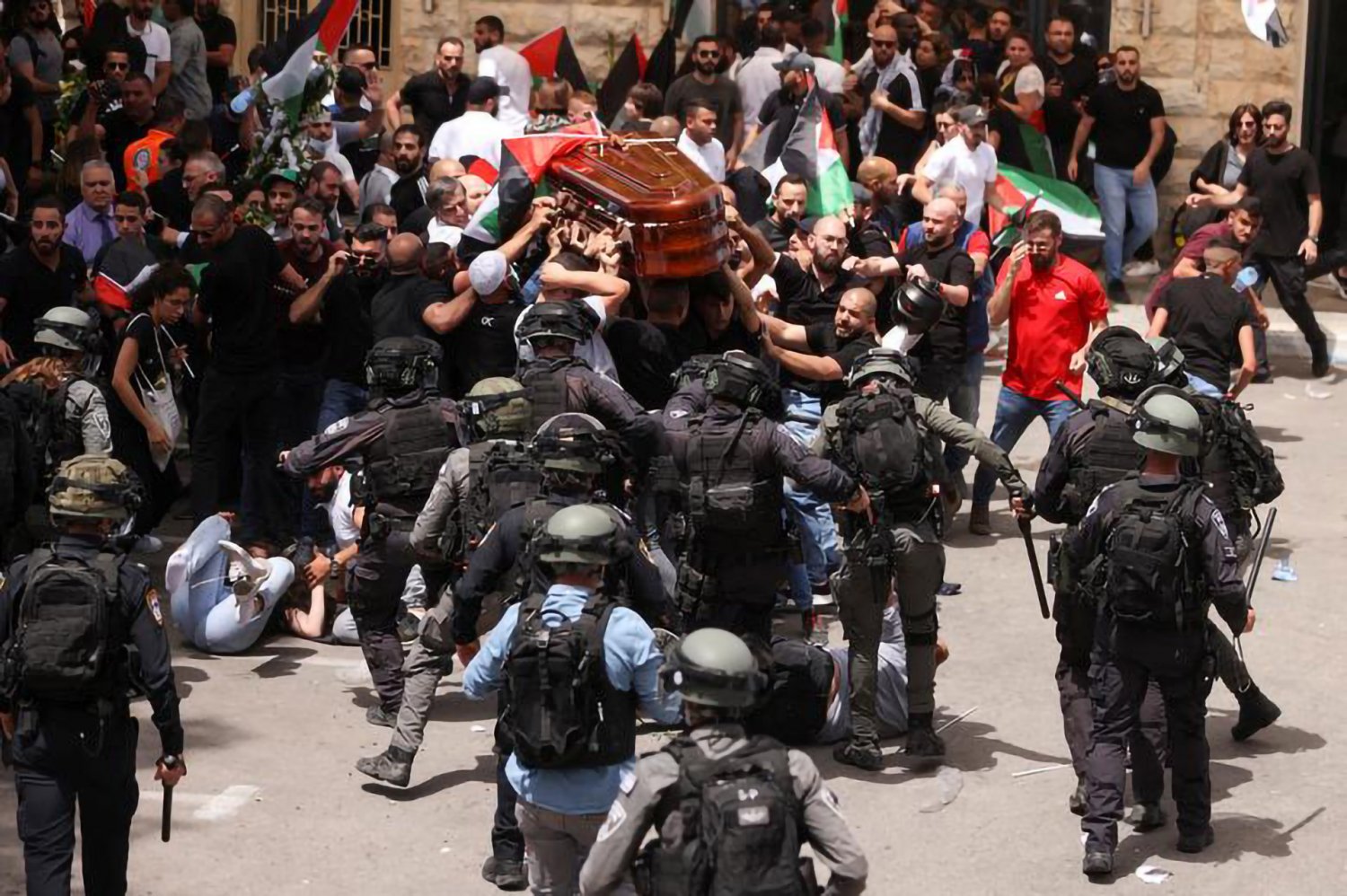Journalist Shireen Abu Akleh was so familiar to Palestinians everywhere that she felt like family. Her death—caused by a single bullet precisely targeted to an area under her ear that was the only part of her head not covered by her press helmet—was a source of shocked outrage and wrenching sadness for all Palestinians. Her teammates, who were right next to her when she was shot on assignment in Jenin, attested that the shooting continued long after she fell and was clearly intended to prevent them from reaching her or offering any assistance.
“We were going to film the Israeli army operation and suddenly they shot us without asking us to leave or stop filming,” said Al Jazeera producer Ali al-Samoudi. “The first bullet hit me and the second bullet hit Shireen . . . there was no Palestinian military resistance at all at the scene.”1 Al-Samoudi later shared that Abu Akleh’s final words were, “Ali’s been hit!”2
The journalists had come to cover an Israeli raid into the Jenin refugee camp. They were at the entrance to the camp and had stood as a group for 10 minutes before proceeding to make sure the soldiers, about 150 meters away,3 were aware they were the press. Describing the atmosphere in that moment as “dead quiet,” al-Samoudi told the Washington Post, “There were no [Palestinian] fighters where we were, none at all,” he said. “We don’t put ourselves in the line of fire. Whatever the Israeli army says for us to do, we do. They shot at us directly and deliberately.”4

















